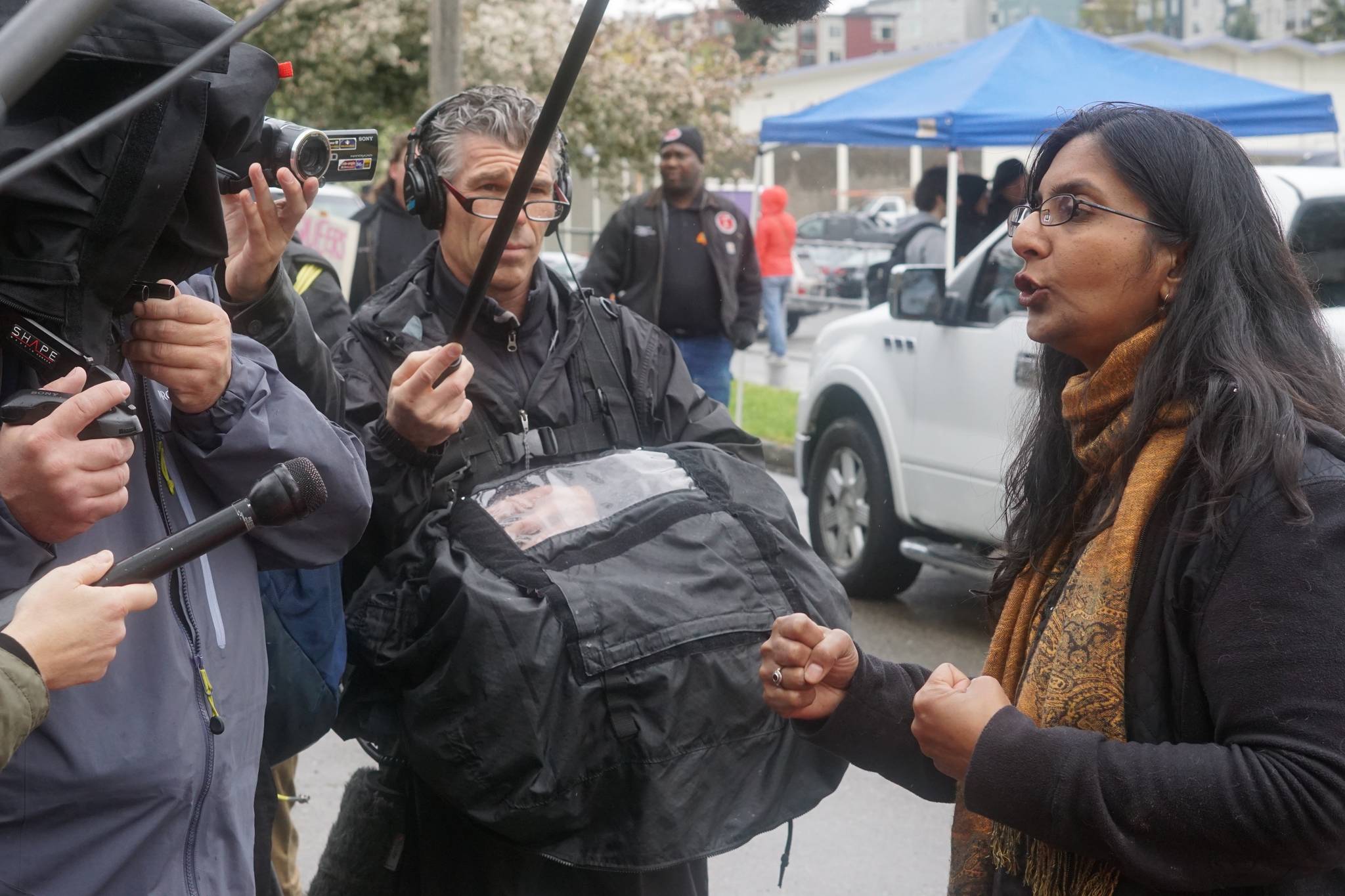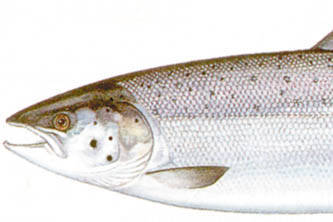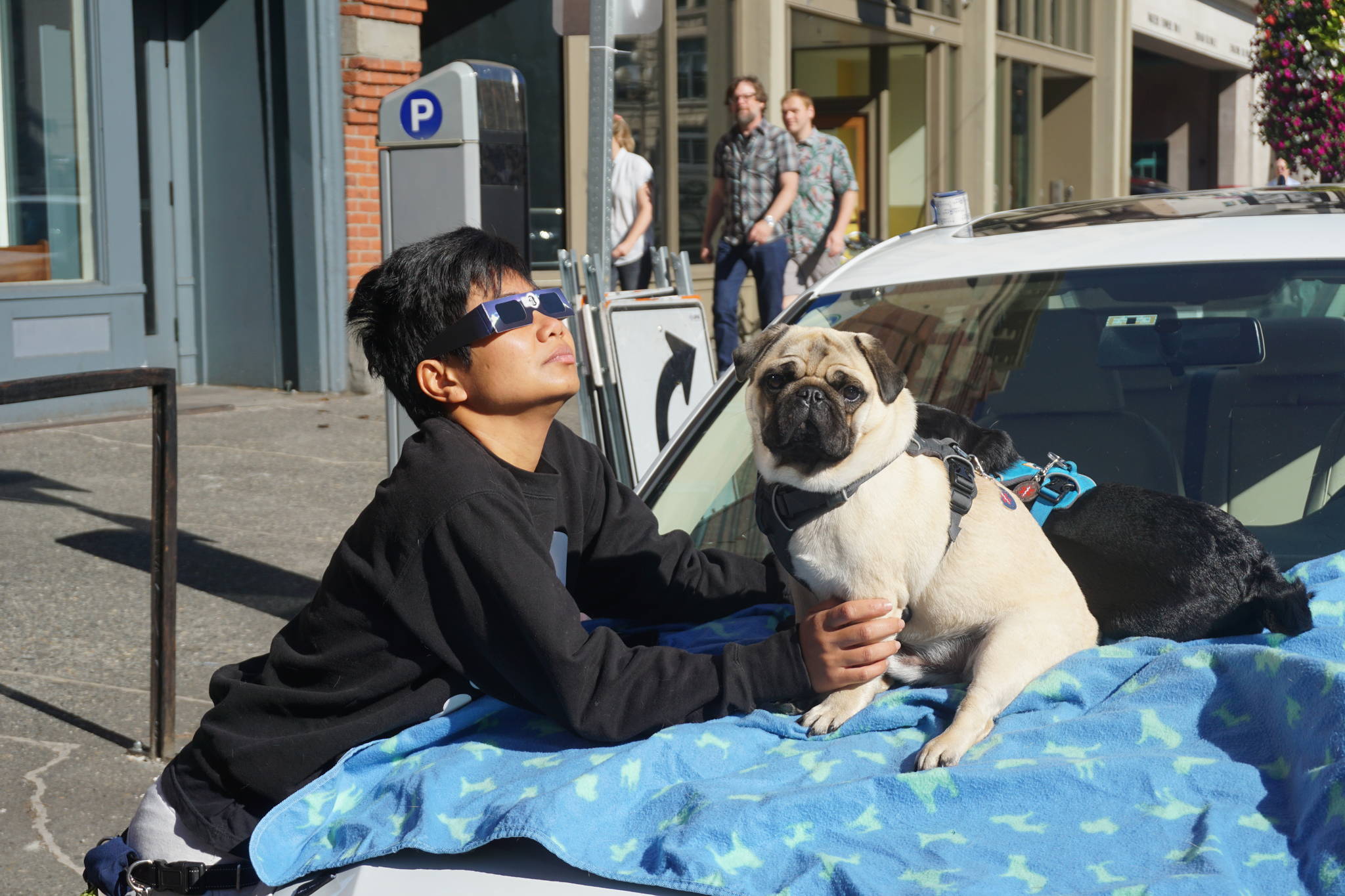Seattle City Councilmember Kshama Sawant will be in Washington, D.C., early next month to discuss the possible launch of a new party.
Its name may sound familiar to Seattle: The People’s Party.
However, while Sawant was an early supporter of the newly founded Seattle Peoples Party and its mayoral candidate Nikkita Oliver, the two groups with similar names have no formal relationship with each other, though they are feeding off the same populist fervor. And just as the Seattle Peoples Party upended local political dynamics during the mayoral primary, the national party has simliar ambitions.
“I think Nikkita Oliver’s campaign is a symptom and actually an example of what’s happening politically in this country,” says Dr. Bill Kildall, Washington State coordinator. “The two party system no longer represents our working people and [her] campaign obviously was directed at gaining support from working people.”
A town hall will be hosted in Washington D.C. on Sept. 9 to discuss the formation of the new People’s Party. It will be livestreamed across the country to similar gatherings. The event in D.C. will be headlined by Sawant, Dr. Cornel West, and Nick Brana, founder of Draft Bernie for a People’s Party (that orginization was what gave rise to the national party’s name).
“What we will be doing,” Kildall says, “is establishing what I would call chapters in each place where the sister townhalls are going to be held. There will be follow up meetings where we will actually form these chapters of the People’s Party and elect officers and make by-laws.”
The idea of making a national party was popularized by the Draft Bernie movement. This campaign, started during the 2016 election, is aimed at creating an official third party led by Bernie Sanders. The petition for this third party currently has 43,000 signatures.
The time is right, Kildall says, citing the discussion surrounding the progressive movement and where it’s headed as a force in this country, and the fact that the establishment parties seem to have fallen out of grace with many voters. Oliver’s performance, Kildall says, shows there is an appetite for people who break political norms.
Oliver was enthusiastically embraced by many corners of Seattle. She received 16.9 percent of the vote with strong showings in Beacon Hill, the Central District, and the University District. The results were especially impressive given that Oliver had never run for office before and still out-performed a former mayor and two state lawmakers.
“I think, had there been fewer candidates running for the mayor’s office in Seattle,” Kildall says, “she would’ve been successful.”
We’ve reached out to the Oliver campaign for comment about the national movement; we haven’t heard back yet.
The party will be speaking about the needs of the people that haven’t been met, Kildall says. These are issues that range from income and wage equality to universal health care with a host of familiar qualms in between.
The event’s headliners are prominent progressives. They, however, have their own political affiliations different from the People’s Party (like Sawant, who is a member of Socialist Alternative). This isn’t a problem, according to Kildall, because they all care about the same issues.
“I think what we’re going to have is a coalition of progress organizations that are going to come together in 2018 to primary those that no longer represent us in congress,” Kildall says.
This progressive coalition has long term goals, too.
“I think also we will have these organizations moving in 2020 for a national party that will be able to prevail in the presidential election,” Kildall says.
Presidential aspirations aside, the crux of this new party is for people to come together. With the People’s Party on a national level, people won’t feel isolated or unable to evoke change.
“I think this is really an exciting time,” Kildall says, “even though there’s such chaos nationally with the present administration.”
news@seattleweekly.com








